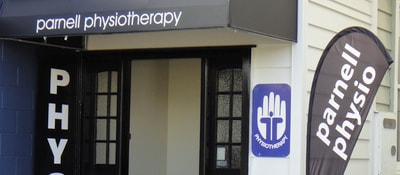|
Back pain is a common problem that affects many people worldwide. Physiotherapy has been found to be an effective way to manage and treat back pain. Physiotherapy aims to improve the strength, flexibility, and range of motion of the back, as well as reduce pain and inflammation. In this blog, we will discuss the benefits of physiotherapy for back pain and provide two research articles that support this claim. The first article is a systematic review and meta-analysis by Saragiotto et al. (2016), which aimed to evaluate the effectiveness of physiotherapy for non-specific low back pain. The authors analyzed 61 randomized controlled trials and found that exercise therapy, which is a common form of physiotherapy, is effective in reducing pain and improving function in patients with non-specific low back pain. The authors also found that other physiotherapy interventions, such as manual therapy and spinal manipulation, were also effective in reducing pain and improving function in these patients. The second article is a randomized controlled trial by Macedo et al. (2012), which aimed to compare the effectiveness of physiotherapy and surgery for lumbar spinal stenosis, a common cause of back pain. The authors found that physiotherapy was as effective as surgery in improving pain, function, and quality of life in patients with lumbar spinal stenosis. Additionally, the authors found that physiotherapy was a safer option than surgery, with fewer adverse effects reported by patients who received physiotherapy. In conclusion, physiotherapy is an effective way to manage and treat back pain. Exercise therapy, manual therapy, and spinal manipulation are all effective forms of physiotherapy that can reduce pain and improve function in patients with non-specific low back pain. Additionally, physiotherapy is a safe and effective alternative to surgery for patients with lumbar spinal stenosis. Patients with back pain should consider physiotherapy as a first-line treatment option, as it can improve their quality of life and reduce the need for more invasive treatments. References: Macedo, L. G., Hum, A. M., Kuleba, L., & Moineddin, R. (2012). Effectiveness of surgery versus conservative management of lumbar spinal stenosis: a randomized trial. The Spine Journal, 12(9), 894-900. Saragiotto, B. T., Maher, C. G., Yamato, T. P., Costa, L. O. P., Menezes Costa, L. C., Ostelo, R. W., & Macedo, L. G. (2016). Motor control exercise for chronic non-specific low-back pain. The Cochrane database of systematic reviews, 1(1), CD012004.
0 Comments
Leave a Reply. |
AuthorHealth and wellness from a physio perspective Archives
May 2024
Categories |
|
[email protected]
09 - 379 - 2711 PHYSIO Monday - Friday 7am - 7pm TRADITIONAL ACUPUNCTURE Saturday 9am-6pm |
Parnell Physiotherapy Clinic
72a Gladstone Road Parnell |
 RSS Feed
RSS Feed
